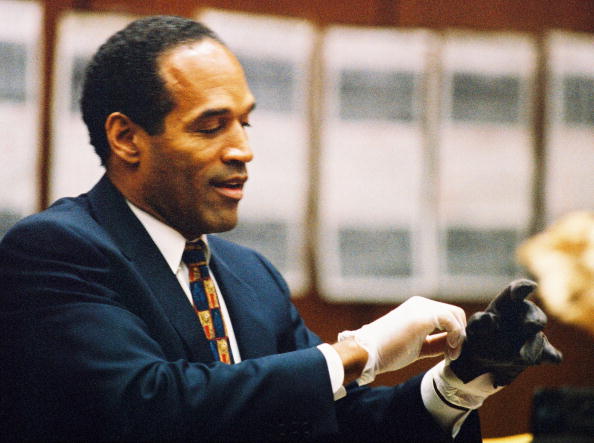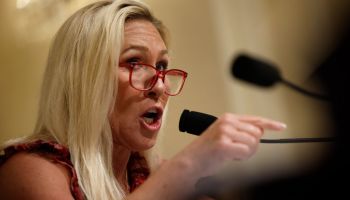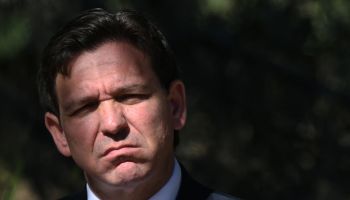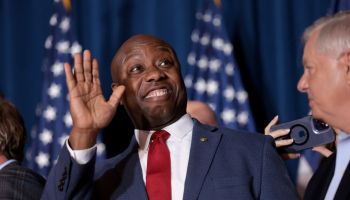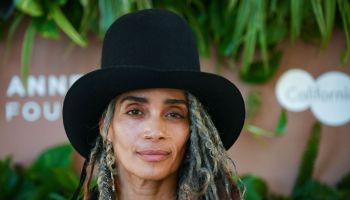Being a trial lawyer in the South, I have witnessed firsthand how race matters during trials. Race is injected in all sections of litigation, including jury selection, treatment of defendants, jurors’ perceptions of defendants, believability of witnesses, sympathy for alleged victims, and most importantly, the verdicts and sentences. While some of it is intentional, a lot of it is subliminal.
RELATED: Don’t Be Mad About Zimmerman’s Verdict If You Avoid Jury Duty
While watching Juror B-37 give her interview on Anderson Cooper, I became nauseated, nauseated to the fact that she did not get it. She did not understand that her biases were impacted by race and that race was a factor in their decision. Her accounts of deliberations actually supported the blog I wrote about people needing to be more active in jury duty.
Many of the words she said, included “Those people,” “The way THEY live,” and “I didn’t understand her language (speaking of Rachel Jeantel)” really struck a nerve with me as I was yelling at the television, “YOU NEEDED SOME BLACK FOLKS TO EXPLAIN THOSE THINGS SO YOU WOULD UNDERSTAND!!!!”
I cannot and will not say B-37 is racist because there is no evidence of it, however, the huge cultural divide during that trial between the races became apparent during her attempted justification of her decision during interviews.
RELATED: It’s Pro-Racial Profiling Week At Washington Post
Jurors must understand all aspects of testimony in order to come to the right conclusion. It is very important for every juror to understand what is being said, described, and discussed during trial in order for him or her to reach a fair and just verdict. When we don’t understand something, we run away from it.
This concept is similar to a college student not understanding Physics and Calculus, which causes the student to run away from science and math classes. Jurors do the same thing by running away from what they don’t understand and running to what they know, understand, and do not fear. They run to something much more familiar and easy to understand and similar to them.
I believe B-37 ran to George Zimmerman’s version of events, adopted them, and stuck by them from the start because of her lack of understanding Trayvon Martin and Rachel Jeantel, as well as her biases toward someone who probably doesn’t look like her and therefore can’t relate to.
During the Zimmerman trial and deliberations, according to B-37, jurors were not clear on a lot of things said and described. That confusion is why I take time to explain things to jurors for them to grasp the concepts and testimony while listening and observing in trial. It makes things easier to understand and jurors learn about the cases they will hear.
RELATED: Chris Matthews Apologizes For White Racism, Gets Attacked On Twitter [VIDEO]
For example, the prosecutors in the Zimmerman case had a duty to let the jury know any slang terms they may hear. They also had a responsibility to extract testimony from Rachel Jeantel to explain why she was angry with Don West and that he subjected her to several nasty cross-examinations during depositions.
They also had an obligation to let the jury know about Trayvon and who he was. Prosecutors needed to humanize him instead of making him only a gunshot victim. We all know that he was shot, but WHO was this kid? What were his dreams? Did he enjoy sports? Ask about him being the only person who didn’t tease Rachel Jeantel in school? THOSE are the things a jury can understand regardless of race. That should’ve been explained, and Trayvon’s story would’ve been told much better.
RELATED: Charles Barkley ‘Agrees’ With GZ Verdict, Says ‘Black People Are Racist Too’ [VIDEO]
Rachel Jeantel did a magnificent job on Piers Morgan telling us who Trayvon was. Similar to how Piers interviewed her, the prosecutors should have done the same thing by asking her inquisitive questions about Trayvon, allowing her to describe, in detail, his character by eliciting the testimony needed to connect with the jurors.
The problem may be that some prosecutors are so accustomed to demonizing young Black boys and men that they have a hard time seeing us as people with souls, feelings, and positive futures.
When a jury is detached from feeling for a person in trial, you have already lost that case.
When I am in jury trial, I work hard to minimize the cultural divide and explain to jurors why a person has a nickname, what a nickname is, or define slang terms they may hear. That helps bridge the communication gap between the people I am representing and the jurors who will ultimately determine his or her fate.
Of course, I hope for a mixed-race and mixed socio-economic jury because a jury is told to bring in their life experiences and discuss them; racial and economic diversity can help greatly during deliberations. However, in the Zimmerman case, two Black potential jurors were struck from the jury pool despite the fact that prosecutors challenged the move.; they were overruled by the judge. A darn shame.
A trial lawyer must become a multi-cultural tutor inviting jurors into the world of the unknown so jurors will understand who the person is, why they should want to understand another culture or set of circumstances. Hopefully the jurors will feel the emotions for the Trayvons in the world and be able to understand the case. That racial and cultural divide was enormous and obvious according to B-37’s interview.
She obviously didn’t understand Trayvon or Rachel, which ultimately led to the verdict; Her mind seemed to be made up from the beginning.
She evidently understood “Georgie,” as she called Zimmerman in her interview, and felt she knew “what was in his heart.” That benefit is not the same for everyone in trial. That is evidence of the way we shift to the things we know and understand but reject the things we do not understand and, as stated before, we run to the things we know, understand, and are familiar with.
I pray this case changes things and causes the conversations to begin. We need to close that gap of understanding, especially when seeking justice in court because justice is not blind.
Follow @ericgusterEric L. Welch Guster is founder and managing attorney of Guster Law Firm in Birmingham, Ala., handling criminal and civil matters, catastrophic injuries, criminal defense, and civil rights litigation. Mr. Guster has become a go-to lawyer for the New York Times, NewsOne, NBC, CBS, ABC, FOX, Black America Web, and various radio programs about various court issues and high-profile cases.
